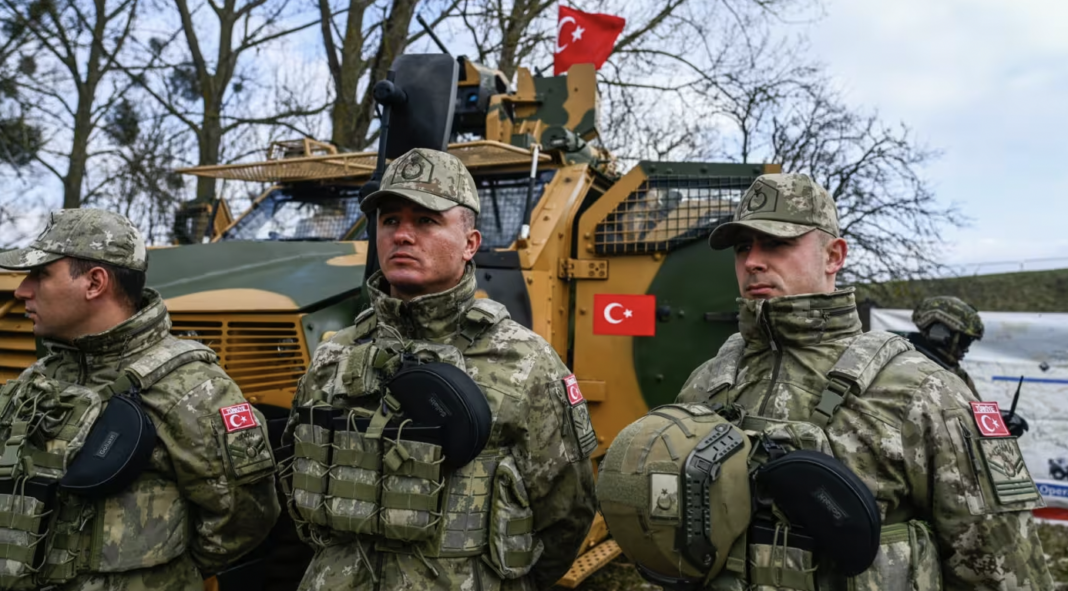Ankara can make a vital contribution as questions loom over the long-term US commitment to the continent’s security
Financial Times, June 24, 2024, by Gönül Tol
The writer is director of the Turkey programme at the Middle East Institute and author of ‘Erdoğan’s War: A Strongman’s Struggle at Home and in Syria’
Nato leaders will meet in Washington in July at a critical moment for European defence. Russia’s invasion of Ukraine confirmed that Europe cannot defend itself without America. That’s troubling, especially given that Donald Trump, whose commitment to European security is questionable at best, may return to the White House. Even if the next president is a Europhile, the Ukraine war and the US effort to pivot to the Indo-Pacific present Europe with its most dangerous juncture in decades.
To stand on its own feet on defence, Europe must start entertaining uncomfortable ideas. That includes incorporating Turkey into plans to scale up Europe’s military capabilities. For many European leaders, however, Turkey’s Recep Tayyip Erdoğan tops the list of unsavoury partners — and for good reason. His autocratic rule, unpredictability and tirades against the west often anger them. The Turkish strongman’s long foot-dragging on Swedish and Finnish Nato accession was only the latest headache for western leaders. Add Erdoğan’s cosy relations with Russia’s Vladimir Putin and Turkey’s troubled history with Greece and Cyprus to the mix, and it is clear why Ankara is not viewed as an indispensable ally but a spoiler of European security.
It is no surprise that Turkey has been excluded from efforts to build up Europe’s defence capacity, including the Permanent Structured Co-operation. Set up by the EU in 2017 amid anxieties over Trump’s commitment to European security, Pesco aims to deepen co-operation among member states but is open to the involvement of third countries. The EU, however, has long rejected Turkey’s participation on political grounds. One outspoken opponent of incorporating Turkey is French President Emmanuel Macron, who calls for a stronger European defence and a more globally assertive EU but sees Erdoğan’s foreign policy as an impediment.
Macron may not want to hear it, but the EU lacks the military capabilities to match its aspirations. Defending Europe from a revisionist Russia must involve non-EU Nato countries. The awkward truth is that excluding Turkey from efforts to boost European defence because of Erdoğan is myopic.
Turkey already plays a critical role in defending Europe. It takes part in Nato operations and many EU missions. Besides, building up the continent’s capacity to defend itself is a generational project and Erdoğan will not run Turkey forever, no matter how hard he tries. The March municipal elections, which dealt the ruling party a seismic blow, underscore Erdoğan’s weakening grip on power. A post-Erdoğan Turkey may only partly change its foreign policy but it will have more to offer European defence against Russia. Here are three reasons why.
First, despite Erdoğan’s cultivation of close ties with Putin, a revisionist Russia poses a grave threat to Turkish national security. Second, Turkey’s defence industry has received a boost under Erdoğan but its future will be even brighter with democratic governance, meritocracy and financial stability. From ammunition to short- and medium-range air defence systems, Turkey’s defence industry can pay dividends for European security in the long term and help Europe plug gaps left by the US. Finally, Turkey can help Europe with its manpower shortages. Under Erdoğan, the Turkish military, like all other institutions, has been politicised and staffed with loyalists. But it is still Nato’s second-largest army and its professionalism will be restored once autocratic politics is out of the way.
Rebuilding European defence is a monumental task. When Europe gets its military act together, it must incorporate Turkey into its plans. This will not only boost the defence of a post-American Europe but anchor a post-Erdoğan Turkey in Europe’s security architecture.

